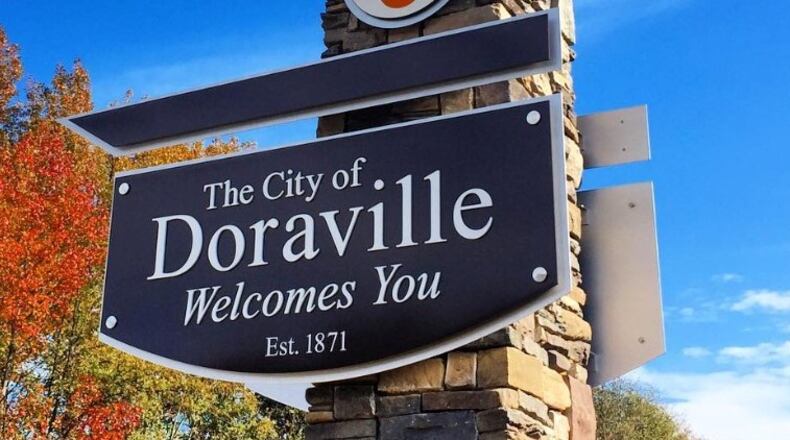Doraville once again prevailed in court after three appeals judges found the city did not improperly rely on fines and fees to balance its budget.
The legal battle, which has persisted for four years, centers around four Georgians who received municipal fines and traffic citations in Doraville. They claim the city’s budget relies on municipal fines, which illegally motivates the city’s cops and judges to overcharge and over-prosecute.
The four people are represented by the Institute for Justice, a libertarian advocacy organization, which argues that Doraville’s fines go too far. Traffic tickets and code enforcement fines have funded significant portions of the city’s annual budget — in some years as much as a third of general fund revenue has come from fines and fees.
However, Judge Andrew Brasher of the U.S. Court of Appeals for the 11th Circuit wrote that cities are allowed to enforce their fines even if those fines are steep.
“It may be unwise for a government to rely on fines and fees to balance its budget,” Brasher wrote in the opinion, which was filed Friday. “But the importance of fines and fees to a city’s budget does not make its procedures for imposing fines and fees unconstitutional. The district court therefore correctly granted summary judgment to the City, and we affirm.”
Joshua House, an attorney for the Institute for Justice, told The Atlanta Journal-Constitution on Monday that he believes there may be grounds for this case to move to the U.S. Supreme Court. He said they’ll need to research their options, other rulings by circuit appeals courts and decide whether it’s worth trying to get the highest court in the country to take on the case.
“The Supreme Court only takes a certain number of cases, and they’re usually certain types of cases,” House said. “So we need to evaluate whether (this) is that type of case. I will say that we’re extremely disappointed with the ruling.”
House argues that cops and judges could be fired if they don’t bring the city enough money, creating a conflict of interest. Doraville has repeatedly disputed that its employees are pressured to bring in revenue for the sake of job security.
The genesis for the case took place between 2015 and 2017, when Jeffrey Thornton, Janice Craig, Hilda Brucker and Byron Billingsley were all cited in Doraville for various incidents. Thornton and Brucker were charged with code enforcement violations, while Craig and Billingsley received traffic citations.
All four eventually pleaded no contest or guilty and were ordered to pay fines varying from $100 to $300. Brucker also received six months of probation for code violations, including chipped paint, weeds and overgrown vegetation at her home.
They filed their joint lawsuit in 2018, claiming the city’s fining habits were out of control. In December 2020, U.S. District Judge Richard Story ruled in the city’s favor, and that ruling was affirmed by the appeals court last week.
Harvey Gray, the attorney representing Doraville, previously said the four plaintiffs should have appealed their individual cases if they felt they weren’t being given due process.
“The only irreparable injury that the two traffic court case plaintiffs (Craig and Billingsley) said is we might drive through Doraville again, and we’re scared we’re going to get a ticket,” Gray said last December in court. “Well, the answer is don’t violate the law.”
Since the case was filed, Doraville’s budget has relied less on municipal fines. In 2010, about 35% of the city’s general revenue came from municipal fees. Since 2015, that figure has steadily decreased, and it has dropped below 10% since 2020. House said fines and fees comprise just 1.4% of the average American city’s revenue.
Both House and the city said the COVID-19 pandemic likely played a factor in the recent dip, but House added the decline could be a result from the lawsuit. A prior statement from the city primarily attributed the decline to an increase in population.
“Over the last four years, fines and fees have made up a decreasing portion of our budget thanks to explosive growth throughout the city and improved compliance with our laws,” the city’s statement said. “Our population has shot up 27% since 2010 and new businesses are moving in every month.”
House said they’ll decide whether to appeal the latest ruling within the next few weeks.
Timeline: Doraville fees and fees case
PDF: Appeals court ruling
About the Author
Keep Reading
The Latest
Featured



